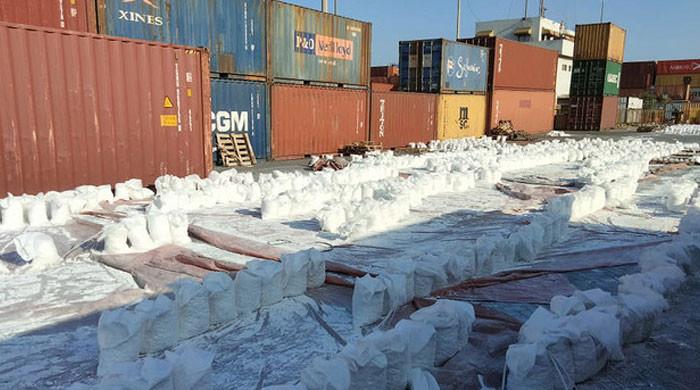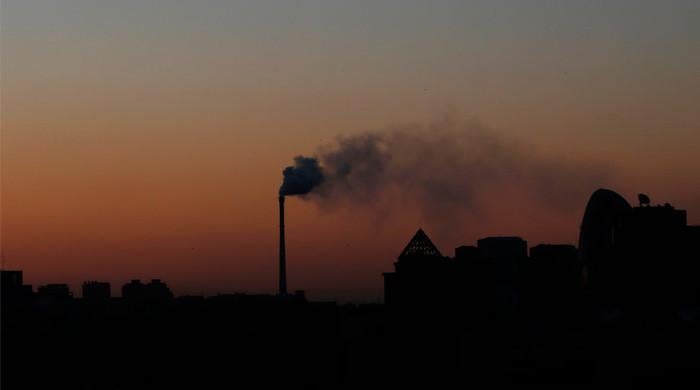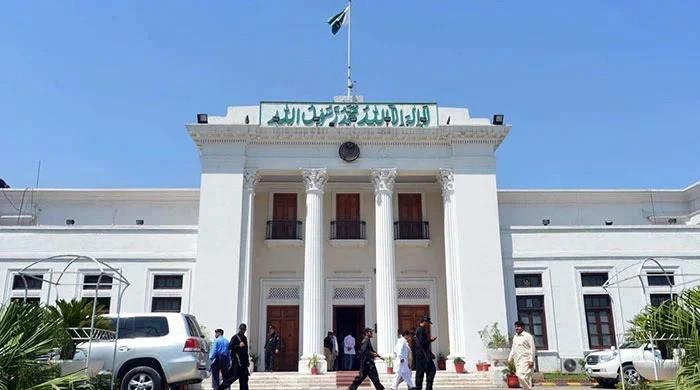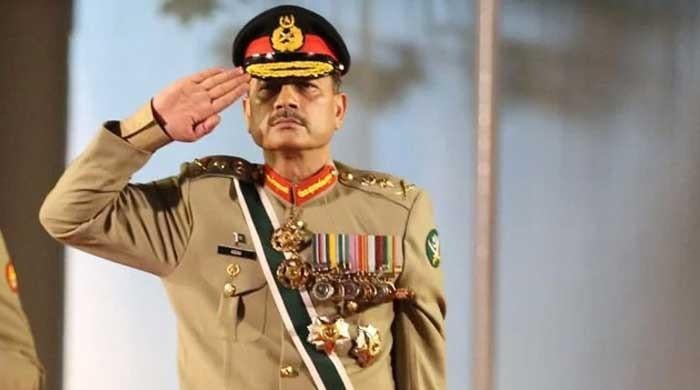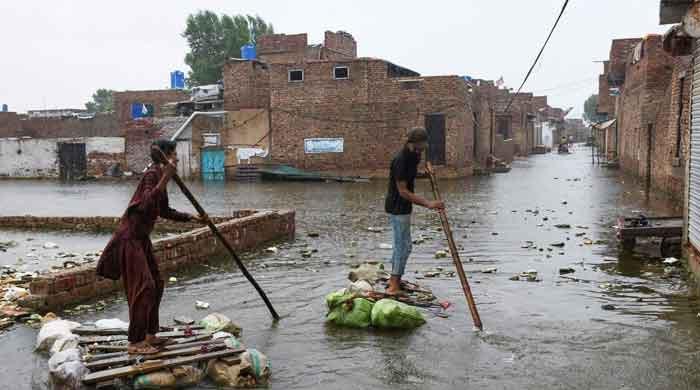The petroleum levy burden
Govt's move to increase petroleum levy reflects continuing dependence on regressive, inflationary taxation
April 22, 2025
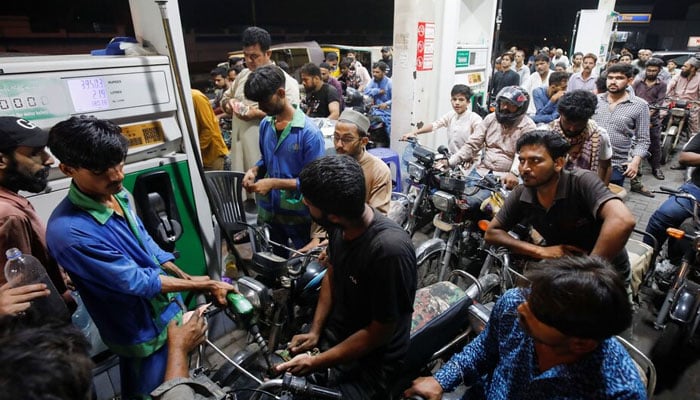
The Pakistani government's decision to raise the petroleum levy to Rs80 per litre — via amendments to the Petroleum Products (Petroleum Levy) Ordinance, 1961 — has dashed public expectations of a Rs10 per litre cut in fuel prices.
This move, made to meet IMF targets, reflects Pakistan's continuing dependence on regressive, inflationary taxation. It diminishes consumer purchasing power, restricts growth and shifts the burden of fiscal consolidation onto ordinary citizens.
While the government prioritises loan conditions, it shows little intent to rein in extravagant spending on official perks, a bloated bureaucracy, and unchecked corruption, laying bare a systemic inequity in fiscal governance.
However, it has no shame in asking the public to "sacrifice" in the name of "development", because it makes the dubious claim that the funds raised through the increase will be spent on construction projects in Sindh and Balochistan.
The petroleum levy is a major source of federal revenue. Classified as non-tax income, it bypasses provincial sharing under the National Finance Commission (NFC) award. In the first half of FY2024–25 (July–December 2024), it generated Rs550 billion. The new rate is expected to add Rs321 billion to Rs400 billion, with total annual revenue projected at Rs1.821 trillion.
This aligns with IMF requirements under the $1.3 billion Resilience and Sustainability Facility, which also proposes a Rs 5 per litre carbon levy from July 2025. These steps support Pakistan's broader $7 billion Extended Fund Facility (EFF), approved in September 2024, which demands a 3% reduction in the fiscal deficit over three years — two-thirds of which is to be achieved in FY2024–25, mainly via indirect taxes like the petroleum levy.
Though effective in raising revenue, this policy exacts a high economic price. It nullifies the benefits of falling global oil prices. Inflation averaged 5.25% from July 2024 to March 2025 – down from 27.06% a year earlier — thanks to a high base effect, lower global commodity prices and a stable exchange rate.
But the levy hike threatens to reverse this trend, as structurally higher fuel prices elevate transportation costs and, in turn, the prices of essentials like food, clothing, and household goods. Since food makes up nearly 40% of the Consumer Price Index (CPI), and transport costs are a major part of the food supply chain, fuel inflation hits the poorest hardest.
For low-income families — many of whom spend half their income on food and transport — this move is deeply regressive. Rather than passing on the benefits of global oil price declines, the government has imposed a hidden tax, disguised as a price adjustment, to satisfy IMF targets while shielding the privileged elite.
Businesses, too, face growing pressures. Pakistan’s large-scale manufacturing sector contracted 3.59% in FY2024, and higher diesel costs will raise production and logistics expenses. Agriculture, a key driver of Q4 FY2024’s 3.07% GDP growth, relies heavily on diesel-powered machinery. Increased fuel costs will squeeze farmers’ margins, threatening rural livelihoods and food security.
The logistics sector, vital for trade and supply chains, faces similar pressures, with rising costs eroding competitiveness and raising prices.
Economic growth remains tepid. The average growth rate for the first half of the current fiscal year stood at approximately 1.5%, far below the population growth rate, highlighting the economy's inability to generate sufficient jobs to address the expanding youth labour force.
The levy discourages consumption and investment in an already strained economy, where the investment-to-GDP ratio sits at just 13.14%. The government projects 3.6% growth for FY2025, but it is highly unlikely that it will meet this target.
External challenges further complicate matters. Although the current account deficit has narrowed, the improvement is largely due to record remittances and not robust exports.
With only modest export growth expected in FY2026, higher fuel costs could weaken the competitiveness of key sectors like textiles, which generate 60% of export earnings.
This situation highlights fundamental issues of fairness and governance. While the government leans heavily on the petroleum levy, it has failed to curb wasteful spending. Official luxuries continue unchecked.
Administrative costs rose 15% in the FY2024–25 budget, and the civil service, employing over 1.4 million people, remains bloated and inefficient, costing the economy an estimated 2% of GDP. Corruption drains billions annually, yet serious accountability remains elusive and politicised, largely used as a tool of victimisation.
This unwillingness to lead by example puts an unfair burden on ordinary citizens. The poor are forced to absorb rising costs while the elite are insulated. The government justifies the levy as a fiscal necessity yet loses billions through untargeted subsidies and inefficient state-owned enterprises.
IMF recommendations to broaden the tax base— especially by taxing under-contributing sectors like real estate, agriculture and retail — have seen little progress, leaving the petroleum levy as a blunt, one-size-fits-all solution.
The IMF’s influence is undeniable. The levy hike is part of its push to cut Pakistan’s fiscal deficit from 6.7% of GDP in FY2025 to 3.7% by FY2027. Conditions under the EFF, such as eliminating exemptions and expanding the tax net, are intended to stabilise the economy and unlock future financing. However, this strategy risks public backlash, especially when declining global oil prices should have allowed for consumer relief.
Long-term overreliance on regressive taxes is unsustainable. It may provide short-term revenue, but it hampers growth, reduces demand and increases public discontent.
Pakistan’s interest-to-revenue ratio is among the highest globally, signalling a debt crisis in the making. Without serious reforms — like taxing the informal economy and improving public sector efficiency — the levy will only deepen inequality and economic distortion.
A more balanced approach is urgently needed. The government should implement a fuel pricing formula with caps on embedded taxes, ensuring global price drops benefit the public. Cutting non-essential expenditures — starting with a 20% reduction in administrative costs — would show fiscal responsibility. Privatising loss-making state-owned enterprises could help, though success continues to be elusive due to low investor confidence.
In the end, securing economic recovery will require more than IMF compliance. It demands structural reform, better governance and a fairer distribution of the tax burden — one that doesn’t demand sacrifice from the poor while protecting entrenched interests.
The writer is former head of Citigroup’s emerging markets investments and author of ‘The Gathering Storm’.
Disclaimer: The viewpoints expressed in this piece are the writer's own and don't necessarily reflect Geo.tv's editorial policy.
Originally published in The News




